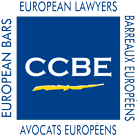As the world has become increasingly more online, especially in the current COVID-19 pandemic, more and more businesses have become interested and invested in the use of electronic signatures (e-signatures), because of what they can bring to business operations and business efficiency.
E-signature solutions can offer a range of different benefits to organisations, helping to streamline operations by making the signing of various documents more accessible and straight-forward than ever before.
Whilst e-sign technology has much to offer, many may still be concerned if this method of signing is as valid as handwritten signatures. In short, yes it is; as long as e-signatures meet certain requirements, they will hold the same legal power as handwritten equivalents.
When Are E-Signatures Valid?
In 2000, both the ESIGN (Electronic Signatures in Global and National Commerce Act) and the UETA (Uniform Electronic Transactions Act) established the criteria for valid electronic signatures.
Through these acts, e-signatures hold the same legal standing as signatures that are handwritten. Often, these solutions are used where old-fashioned, handwritten contracts and signatures can be easily replaced. Furthermore, in cases where there is a time-bound element of the agreement, such as in some cases of recruitment (more information) and other financial and contractual agreements.
However, e-signatures are, as with handwritten signings, only valid if there was intent to sign on the signer’s behalf. Other vital elements for a valid e-signature include the following:
Consent ? In order for an e-signature to be valid, those signing must actively consent to sign electronically, and not have retracted this consent.
Recording ? Both the ESIGN and UETA require e-signatures to come with clarification that the document was completed electronically.
Access ? E-signature documents must also be accessible by all entitled parties in order to be both valid and thereby legal.
When considering whether or not to use e-sign technology, it is important to read up on the rules and regulations that surround them, and how to ensure any e-signature conducted is legal and valid in both your country and your industry.
Should I Use E-Sign Technology?
There are a variety of different benefits to be had with e-sign technology, enabling businesses to optimise the signing process for numerous documents, increasing efficiency and overall productivity throughout their operations. Below are a few of the reasons you should consider implementing e-signatures into your business:
Time-saver ? It can be a difficult, lengthy process to organise getting all the parties signing a document together in one place, particularly if they’re spread out in different locations. With e-sign technology, the individuals signing a document can do so remotely at any time via their phone or tablet.
Cost-saver ? E-signatures can also save on various different costs associated with the more paper-based type of signing, including the paper itself, printing costs and ink. E-sign technology can also save on other costs associated with handwritten signing processes, such as travel expenses that can come with getting the signing parties together in one place.
What Cannot Be E-Signed?
Whilst e-signatures can be a convenient way to complete various different types of document signings, there are certain circumstances they may not be suited for. These include documents requiring extensive identification measures, witnesses or notarisation. Therefore, signings for such instances as powers of attorney, wills or sworn declarations will typically be paper-based, with signatures hand-written in person.
Whilst e-signatures can be a huge benefit for some, they can also be incompatible with certain circumstances, such as those mentioned above. When considering e-sign technology, it’s therefore important to consider the details of your signings, and thereby whether signing electronically is a viable option.







